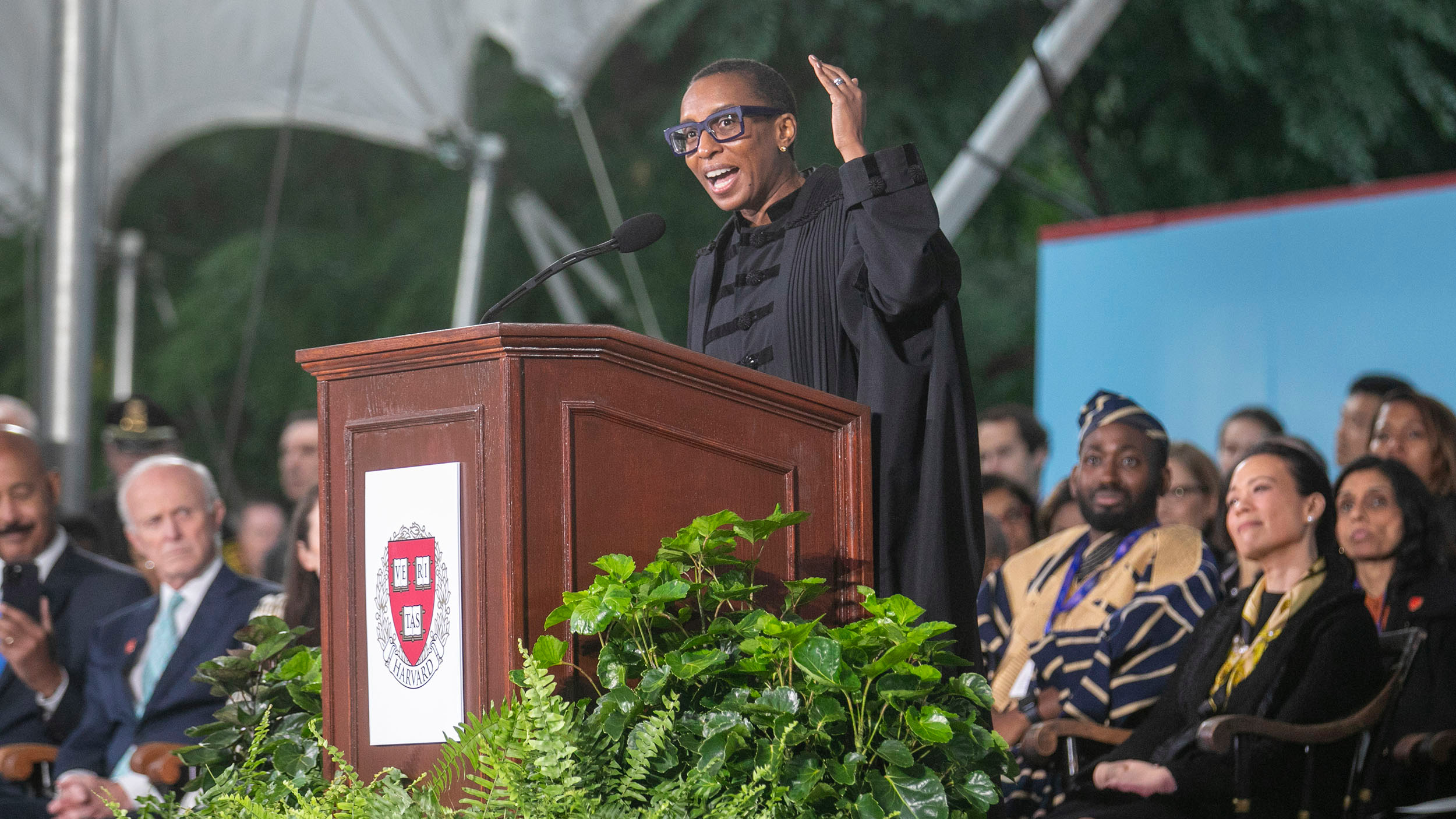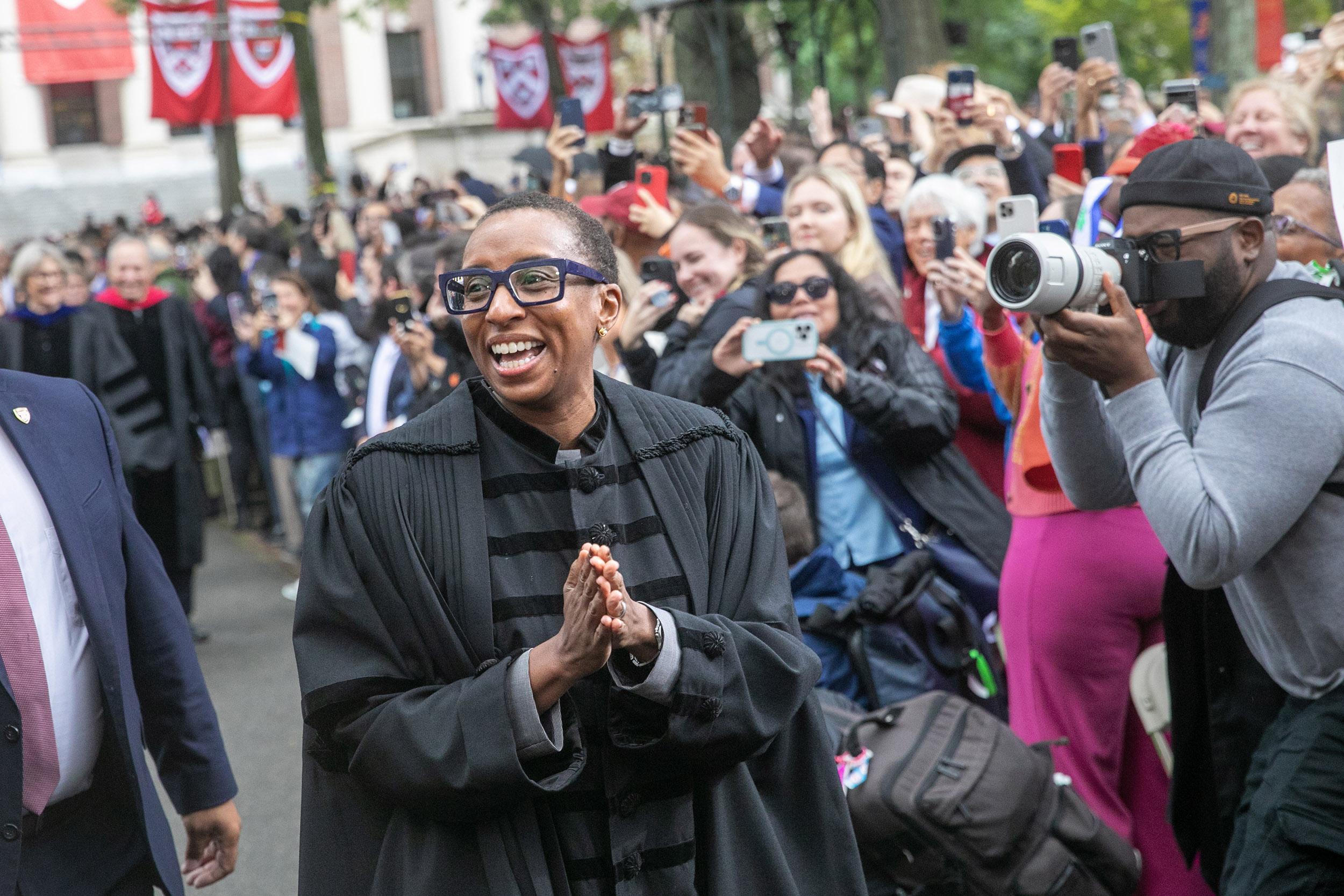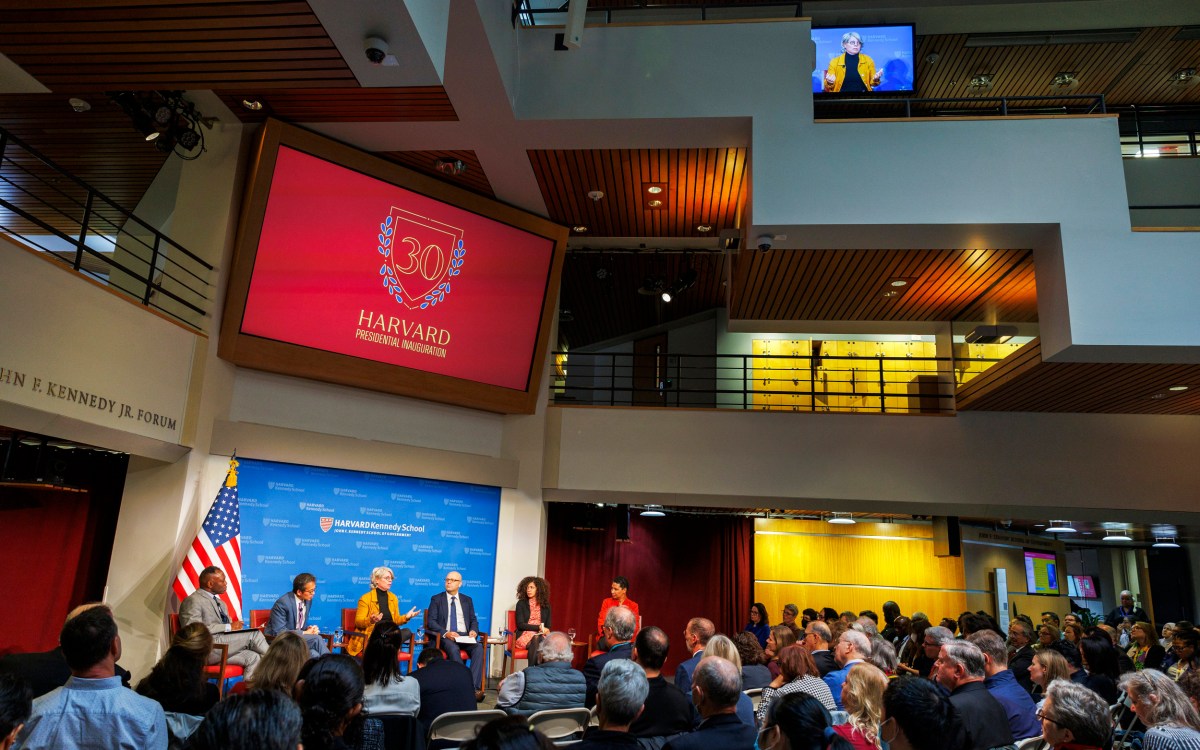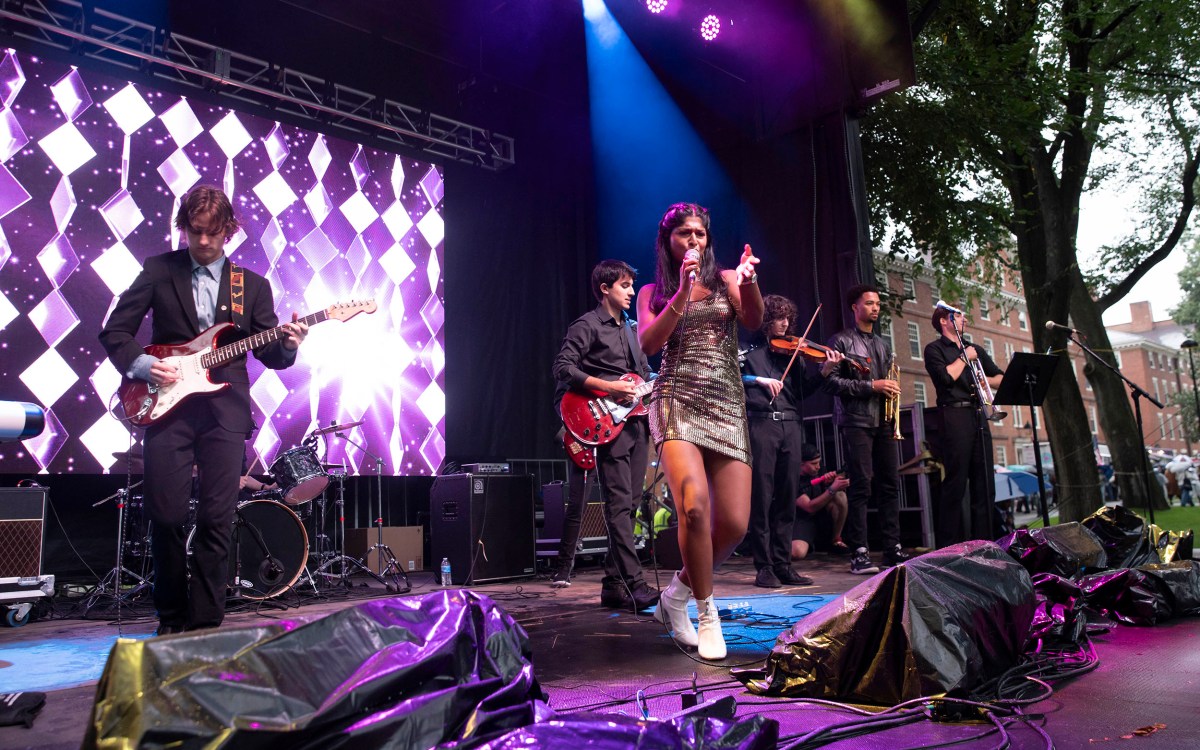
Photos by Jon Chase/Harvard Staff Photographer
Gay sees in Harvard the courage to change the world
University’s 30th president marks inauguration with praise for trailblazers, hope for a future enriched by ‘dynamic engagement’ on and beyond campus
Claudine Gay marked her inauguration as Harvard’s 30th president with a call to action, sharing her vision of a vibrant, diverse community equal to the particular challenges of the world’s most daunting problems.
“The courage of this University — our resolve, against all odds — to question the world as it is and imagine and make a better one: It is what Harvard was made to do,” Gay said Friday. “By continually recommitting ourselves to our central purpose, with renewed vision and vigor, we advance the prospects of humankind.”
Courage also imbues the story of Harvard’s progress from a dark history of deep entanglements with slavery to a welcoming campus enriched by the collision of different backgrounds and beliefs, noted Gay, the first person of color and second woman to lead the University.
“Our stories — and the stories of the many trailblazers between us — are linked by this institution’s long history of exclusion and the long journey of resistance and resilience to overcome it,” she said. “And because of the collective courage of all those who walked that impossible distance, across centuries, and dared to create a different future, I stand before you on this stage — in this distinguished company and magnificent theater, and at this moment of challenge in our nation and in the world, with the weight and honor of being a ‘first’ — able to say, ‘I am Claudine Gay, the president of Harvard University.’”
“The courage of this University — our resolve, against all odds — to question the world as it is and imagine and make a better one: It is what Harvard was made to do.”
Claudine Gay
The ceremony at Tercentenary Theatre began with a procession in which 185 universities and institutions from around the world were represented. It includes invocations, musical performances, dance, and greetings from the Harvard community’s four pillars — students, faculty, staff, and alumni. The 30th president was welcomed formally by a representative of higher education, Chancellor Félix Matos Rodríguez of the City University of New York, which Gay’s parents attended, and a representative of the Commonwealth of Massachusetts, Gov. Maura Healey, who pledged partnership with Harvard.
Gay delivered her address to an audience sheltering from rain under a sea of umbrellas. The University’s differences were an important theme. She said that Harvard should celebrate diversity as a force that deepens and strengthens campus life.
“We embrace diversity — of backgrounds, lived experiences, and perspectives — as an institutional imperative,” she said. “When we do that, it’s not with a secret hope for calm or consensus. It’s because we believe in the value of dynamic engagement and the learning that happens when ideas and opinions collide.”
Among the many challenges Harvard must address is the public’s ebbing trust in higher education, she said. Nearly 40 percent of Americans say higher education has a negative effect on the country, a majority say that earning a four-year degree doesn’t guarantee success, and many believe that a college education simply doesn’t matter.

“These views persist despite volumes of evidence demonstrating the critical role of education for economic mobility and for individual and family well-being,” Gay said. “We are in a moment of declining trust in institutions of all kinds. Of endless access to information, but doubts and conflict about whom and what to believe. Of political polarization so extreme that gridlock is preferred to pragmatic collaboration. And, all the while, the planet warms, inequality grows, democracies falter, and the next pandemic looms.”
Gay called on students and her fellow scholars to continue to challenge status quo ideas, and to push the boundaries of knowledge in the sciences and other fields. She urged researchers to take risks in pursuit of big goals.
“Asking ‘Why not?’ should be a Harvard refrain — the willingness to sound foolish, to risk ridicule, and be dismissed as a dreamer,” Gay said. “We’ve seen it time and time again — the courage to take a chance, even when success seems beyond reach.”
The University’s response to the pandemic stands as an example of learning and changing on the fly, said Gay.
“I witnessed the power of asking ‘Why not?’ as dean of the Faculty of Arts and Sciences, when this space was largely emptied by a pandemic and quieted by uncertainty,” she said. “We might have faltered. Many did. But we dared to work together — faculty, staff, students. Schools across the University shared ideas, resources, and our strength. We set aside long-held assumptions about teaching and research, we rethought the nature of our community, we broke down barriers to collaboration. We acted quickly and decisively, with a strong sense of shared purpose, and we became a model for others. I had never been prouder to be part of this University.”
Before delivering her speech, Gay received her charge and was officially presented to the community by three past presidents — Lawrence Summers, Drew Faust, and Larry Bacow — and by Board of Overseers President Meredith Hodges and Harvard Corporation senior fellow Penny Pritzker.
“We are proud to entrust you with the high privilege and the profound responsibility of leading Harvard in the years ahead,” Pritzker said. “We pledge to join you in the shared enterprise of realizing Harvard’s bountiful potential to serve the world.”
https://www.youtube.com/watch?v=vU75RZkNPWc






